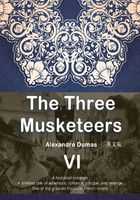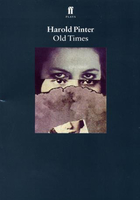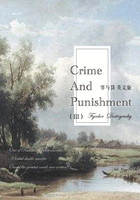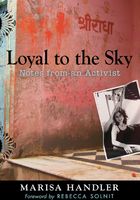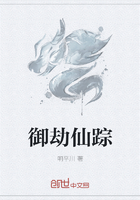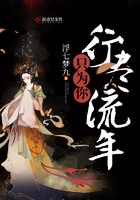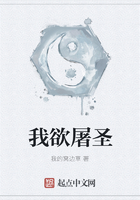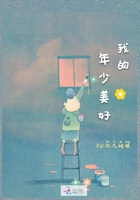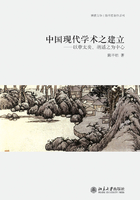SATURDAY, 5:00 A.M.
The sun is just a vague suggestion somewhere low in the sky. A soft, pinkish light pulsing slowly across the tops of the glass-and-limestone buildings that line Fifth Avenue in Manhattan.
I can't believe I'm here.
Yes, I can.
I'm standing on the sidewalk at the corner of Fifty-seventh Street and Fifth Avenue, near the curb, just a few yards from the grand, granite-carved sign that reads: TIFFANY & CO. New York stretches into the sky above me. I'm alone here, not another soul on the street, and I swear I can hear "Moon River" floating through the air. I close my eyes, inhale, and breathe in the city.
This is where she stood.
I'm happy for this hour alone, before the others come. If they come.
Across the sidewalk, I catch my reflection in the Tiffany's window. It's hazy, just an outline. My hair is up, just like hers, and my dress is long and sleek, just like hers. I've got the triple strand of pearls and cat's-eye sunglasses and low sling-backs with kitten heels. Opera gloves, an ivory cape slung over one arm, and a shimmering diamond tiara. If I don't look too closely, I'd swear it was Audrey Hepburn in that reflection. Tall and willowy and glamorous.
There's no trace in that hazy reflection of normal, boring, sixteen-year-old Gemma Beasley from normal, boring Philadelphia, Pennsylvania. No trace of the fake rhinestone tiara or the sixteen-dollar thrift-store gown that wouldn't even know how to pronounce Givenchy. It's a movie star in that window, a real one, in a real Givenchy evening gown.
I close my eyes, imprinting the image on my brain. I don't want to forget it, ever.
I'm here. I've escaped. I've transformed. I'm not Gemma. I'm Audrey. Today, I'm Audrey Hepburn.
5:05 A.M.
I shiver. It's chilly, an early June morning.
I suppose I could slip on my cape.
But no, I can't put it on. I have a script to follow. Breakfast at Tiffany's, the opening scene, where Audrey Hepburn (a.k.a. glamorous young socialite Holly Golightly) steps out of a cab at Fifty-seventh and Fifth-Tiffany's-in the early Manhattan morning after a night out. She gazes at the jewels in the Tiffany's windows while sipping coffee from a paper cup and munching on a pastry. She looks gorgeous. "Moon River" plays in the background-that soft, melancholy song with the swelling violins-and the credits run. Audrey Hepburn. George Peppard. Patricia Neal. Mickey Rooney as "Mr. Yunioshi." Based on the novel by Truman Capote. Directed by Blake Edwards.
I wonder if Audrey was cold that morning, too. I bet she was, but she never put on her cape. And so my cape stays draped over my arm even as goose bumps crawl past my elbows. Audrey didn't need hers, and neither do I.
I look around. Will anyone else come?
Stop being anxious, I say to myself. They won't even be here until six.
It's going to be a big day. We've been planning it for weeks and weeks.
As soon as I saw online that the Ziegfeld Theater was planning a midnight showing of Breakfast at Tiffany's as a way to commemorate the twentieth anniversary of Audrey Hepburn's death, I knew I had to be there.
I also knew that Dad wouldn't allow it. Hence the (so-called) running away.
Anyway, I used Google Maps to make a walking tour of landmarks from the movie and made plans (and reservations) for lunch and dinner at places Holly Golightly went to; and the marquee event-a midnight screening of Breakfast at Tiffany's at the Ziegfeld Theater, which is the most massive, spectacular movie theater in the entire universe-will be the cherry on the cake.
I pull a piece of paper out of my clutch.
Itinerary for the First (Annual?)
Beyond-Fabulous Breakfast at Tiffany's Weekend!
Saturday and Sunday, June 11–12
SATURDAY
6:00 A.M. Meet at Tiffany's with pastries and coffee.
7:00 A.M. Breakfast at a Third Avenue diner.
9:00 A.M. Return to individual hotels to change.
I'm staying at the Malcolm, a supercheap hotel in Chinatown with a shared bathroom down the hall. I'm not sure where the others are staying yet.
10:00 A.M. Begin walking tour of Breakfast at Tiffany's landmarks, starting at Holly's apartment building on Seventy-first Street, where she lived alone with a cat (named Cat), downstairs from the handsome Paul Varjak (who Holly insisted on calling Fred and refused to allow herself to fall in love with). Even though both of them had dates with other people-mostly rich people who always gave them money-it was obvious they should be together.
11:00 A.M. Continue walking tour with visit to Central Park, where Paul Varjak met up with Doc-the husband Holly left behind when she ran away from Texas. Doc still called Holly by her old name, Lulamae Barnes, and he came to New York to convince her to come back. Holly never told Paul that she was married, of course. Not that she was trying to hide it from him or anything. I think she was just trying to forget her old life back in Texas.
1:00 P.M. Lunch at Hamburger Heaven, where Holly Golightly met Mr. O'Shaughnessy to give him the "weather report." The weather report was coded information that Holly got from a mobster named Sally Tomato whenever she visited him in prison. He'd give her money and a bogus weather report, like "Snow showers in New Orleans," and then she'd repeat it to Mr. O'Shaughnessy. She claimed she had no idea what the arrangement was about-who knows what those weather reports really meant-she just took the money and didn't ask questions. Hey, she didn't have a job, and a girl has to survive somehow, right? The only problem is, Hamburger Heaven closed, so lunch will be observed at Burger Heaven instead, just a block over.
2:00 P.M. Continue walking tour to Port Authority Bus Terminal, where Holly said good-bye to Doc and told him she wasn't coming back to Texas with him.
3:00 P.M. A hot dog on the sidewalk on Park Avenue, where Holly told Paul that she was going to Brazil to marry José da Silva Pereira instead of staying in New York to be with him. Even after Paul told her he loved her, and sort of asked her to marry him, a proposal that she sort of ignored.
4:00 P.M. Return to Tiffany's to browse and to ask the clerk if we can get a Cracker Jack ring engraved, just like Paul and Holly did.
6:00 P.M. Return to individual hotels to change.
8:30 P.M. Dinner at "21" Club, which is where Holly was supposed to be when Doc surprised her at her apartment. It's still a pretty exclusive restaurant-I had to make the reservation more than three months ago to get in. I told the others to pretend we were in our twenties; I don't know if they'd allow a group of teenagers in.
11:00 P.M. Arrive at Ziegfeld Theater on Fifty-fourth Street for a special midnight screening of Breakfast at Tiffany's.
SUNDAY
12:00 MIDNIGHT Settle into theater chairs and watch the greatest movie in the world unfold before our eyes.
6:00 A.M. Reconvene at Tiffany's for another breakfast. Decide whether to stay in New York forever, and if not, why not?
5:10 A.M.
My toes are pinched in my low black pumps, which almost fit but not quite. I take short steps, a delicate ballet shuffle across the sidewalk, like Audrey did. Back and forth, avoiding the windows. She floated. I don't. I should have practiced a little more.
It took forever to do my hair this morning. I'm not exaggerating. I woke myself up at 4:00 A.M. to do it. Well, 4:09, actually. There must be two dozen bobby pins in there. The shared bathroom at the hotel was flammable with Aqua Net by the time I was finished. I used it to weld the diamond tiara to my updo. I wonder if I'll ever get it out.
I wonder how Audrey got her hairdo that way. I wonder how many hours it took. But then again, she just had to sit there, probably, while a team of fourteen people fawned over her, looking at her from all angles and telling her how beautiful she was, over and over again. Maybe that would suck, too, getting poked at and prodded and having your hair pulled and having people tell you to close your eyes while they spray you with whatever toxic substance kept wayward hairs in place back then. But then again, when you're Audrey Hepburn, a.k.a. the most glamorous movie star of all time, I'm sure everything sucks a little bit less than if you're just, I don't know, me.
I know what you're thinking. You're thinking I'm deluded. Me? Gemma Beasley? Wearing diamonds? Come off it. Gemma Beasley isn't diamonds material.
Well, I'm not deluded. I know they aren't real diamonds. There's no way I, age sixteen, with exactly $140 and a round-trip train ticket from Philadelphia to New York City, can afford a diamond tiara. The best someone like me can do is a crown of plastic rhinestones.
But if you look at it a certain way, the plastic rhinestones are just right. You think Holly Golightly could afford real diamonds on her own? Not a chance. She had to rely on the, well, kindness of others to get her jewels.
5:15 A.M.
There's no one else on the sidewalk. Hardly any cars on Fifth Avenue. This is only my second time in New York but even I know that's weird in this city, even at this perfect hour. But still, I'm startled at the voice, low and insistent, that cuts through the faint mist.
"Need a ride?"
I spin around, nearly dropping my deli bag. A shiny yellow taxi, one of those fancy new electric ones that surprises you because it doesn't make a sound, is crawling around the corner of Fifty-seventh Street like a cat slinking through a backyard after a bird. The driver, a dark-haired guy much younger than I'd expect a taxi driver to be, nods at me.
I clear my throat. "No, thank you, darling," I say, only I try to pronounce it more like dah-ling, because that's how Audrey would have said it, with an accent that isn't exactly British but isn't exactly American, either. It's sort of somewhere in between. It took me weeks of practice, recording myself with my iPhone and playing it back again, before I got it down, and even now I still don't really have it exactly right. I make a mental note to move to Holland someday, which is where Audrey grew up, mostly. She was born in Belgium and went to school in London some, too. I've spent my entire life in Philadelphia. But maybe if I get to Holland one day, and I listen to Dutch people speaking English, I'll get Audrey's accent right.
"You sure?" the driver asks.
"I'm already exactly where I need to be," I tell him, and I wave him on, my opera-gloved hand swirling through the air, all glamour and nonchalance.
Nonchalance. That's such an Audrey word.
If you've never waved a taxi away down Fifth Avenue with an opera-gloved hand, nonchalantly, I recommend trying it sometime. Just saying.
5:20 A.M.
I remember the first time I saw Audrey Hepburn. Or, I mean, a picture of Audrey, since she died before I was born.
I was thirteen, and I came home from doing the grocery shopping with a copy of Teen Vogue. I tried to hide it from my mother because she always got annoyed whenever I bought anything that wasn't on the list, but she found out about it when she scrutinized the receipt.
"A fashion magazine," she said, shaking her head. "Gemma, you know we can't afford that."
"We can't afford anything anymore," I said, and as soon as I said it I felt my stomach drop. Mom hated talking about money. Ever since we lost the big house and had to move into the tiny little apartment, which didn't even have a bedroom for me, it was the one subject that I was never allowed to bring up.
I pulled out the shoe box that I kept under the couch. There was an envelope in there, a wrinkled one that stuck shut whenever it was a humid day. I pulled out three dollars from the stack of ones that Gram had given me for my birthday and gave them to her.
"Oh, Gemma," Mom said, and I could hear her voice catch. "Is this really what you want to spend your money on?"
I nodded.
"Sometimes I just don't understand you," she said, folding the money into her wallet. "When are you going to figure out who you really are?"
Later that same evening, after a silent dinner of frozen tofu potpies, and after Mom and Dad went down to the Lancer Lounge for their nightly round (or two) of manhattans, I sat on the floor in our cramped living room and looked at the pictures in Teen Vogue. It was the first time in a long while that I had a brand-new magazine, and I loved the smell of it. Usually the magazines I read at the library were already wrinkled and torn. But this one was fresh, with stiff, glossy pages and no smudges.
There were pages and pages of swimsuits ("for all body types"-if your body type was skinny), purses ("for all occasions"-as if I had occasions), and beautiful models posing with perfect, shirtless Abercrombie-esque boys. There were reviews of nail polishes (and removers), a profile of Elle Fanning, party pictures from the Grammys showing Rihanna and Katy Perry pretending to make out, a quiz-"Do You Know How to Say No?"
The main fashion spread was a countdown of the top ten most stylish movie stars of all time, with tips on how you could look like them. It went on for pages. Number 10 was Angelina Jolie in a slim suit, next to a model in a similar suit from Marc Jacobs (as if). Number 9 was Jennifer Lawrence in suede pants and a T-shirt, next to a model in skinny brown jeans and a $350 T-shirt. Number 8 was Emma Stone in a gingham "picnic dress." (Jeez, I wish someone would invite me to a picnic like that someday.) J-Lo in an over-the-top sequined party dress. (For a party that would require an over-the-top sequined number.) And so on. You get the idea.
On the seventh page of the spread was someone I'd never seen before, a tall, slim woman in an old-fashioned black-and-white photo taken on a deserted street in what looked like New York City. She wore a long, strappy, black evening gown. Hair piled high. Pearls, like three strands or maybe more, draping down her back. A tiara. Sunglasses, too. Big and black and movie-star-ish. She was standing at a building under a sign that said TIFFANY & CO., looking in one of the display windows, with a pastry in her mouth.
What was she looking at?
3. Audrey Hepburn was one of the most famous movie stars of the 20th century, and one of the most stylish. She was known for her simple, youthful, sophisticated look. She was serene but bright. She called herself awkward, saying she had gangly legs and a goofy face, but we disagree. She was simply enchanting.
Enchanting. I remember saying it to myself, over and over, marveling at the word. I could barely turn the page; I was transfixed.
It was a funny feeling. I mean, I'd seen so many pictures of beautiful women in beautiful clothes before. In advertisements. On billboards. On television. In magazines. But this one-this one was different. Was it her posture? Was it the dress? Was it the street, Fifth Avenue in New York City, a place I'd only been on day trips with Mom and Dad when she went to visit her editor and Dad and I got ice creams in Central Park?
Enchanting. I knew immediately that I wanted to be enchanting, too. Maybe that's who I am, Mom. Maybe I'm enchanting.
I tore the picture out of the magazine and held it up next to my face in the bathroom mirror. I looked at Audrey, with her perfect posture and flawless skin and elegant updo. I looked at myself, with my droopy eyes and boring haircut and fleshy stomach and a zit nestled in the crease of my nose. I looked back at Audrey. Enchanting Audrey. Droopy Gemma.
I folded up the picture and put it in the shoe box. It's still there. And I still look at it every day. And every time I do, I hear Mom saying: When are you going to figure out who you really are?
She died six months ago. Just a week before my sixteenth birthday.
Back on the sidewalk, I feel a flash of fear as it stabs through my stomach-what if I'm the only one who comes? What if Trina and Bryan blow me off? I feel conspicuous. Another taxi splashes past. I consider hailing it and catching a bus back to Philly. If I get home before dinnertime, Dad might not even notice I've been gone.
Another flash of fear: Just how big of a freak am I? Standing in front of Tiffany's at dawn in a floor-length black gown?
Seriously. If my classmates from Washington Irving High School in Philadelphia saw me right now, it would only confirm what I'm sure they already think: that I'm a hopeless, boyfriendless, vintage-clothes-wearing loner who's never been to Forever 21 or H&M and therefore knows nothing about fashion or style or how people should dress. They don't know, or care, about things like Christian Dior. Or the difference between "the New Look" and "Mod." Or Charles James or Cristóbal Balenciaga or Pauline Trigère or Diana Vreeland or Funny Face or Roman Holiday or Sabrina or anything else I actually care about, least of all Audrey Hepburn.
"Isn't she the one in On Golden Pond?" one girl, a particularly obnoxious one, said once. "My grandmother loves that movie. She forces us to watch it whenever we visit her at Shady Meadows."
"No, that was Katharine Hepburn," I said. "They weren't related."
"Um, whatever? You know, you should try this century out for a change, Gina."
"Gemma. It's Gemma," I said, but the girl was already gone and I was talking to myself, which seems to happen a lot. More than ever now since Mom died and I have one less person to talk to.
Or maybe I've always talked to myself, come to think of it. I remember Mom telling me that I used to talk to my stuffed animals when I was a kid. And sometimes she'd point it out when I was talking to myself over my homework or while I was riding in the car with her.
"Gem?" she'd say. "Are you having one of your imaginary conversations again?" And she'd laugh, and I'd feel silly but not embarrassed, because she was my mom and she thought my imagination was important.
Since she's been gone, no one really points it out to me anymore. It's my responsibility to notice when I'm talking to myself now.
It's my responsibility for a lot of things, which sucks. It kind of pisses me off sometimes. Did I ask her to die so that I could have more responsibility? Did I ask to be the one to have to take care of the apartment? Did I ask to be the only person who my father talks to anymore? Did I ask for him to text me every twenty minutes, where before just one short conversation a day would be enough? Is it my fault he doesn't have any friends and just sits around the living room reading her books or asking me what I want for dinner or, always hovering, asking me if I need to "talk"?
And you wonder why I ran away.
Or whatever you call this.
Funny how when you're dressed up like Audrey Hepburn and standing outside Tiffany's in New York City, even a siren in the distance can sound like a song. You don't really think that there's probably a tragedy attached to it, like someone dying.
5:25 A.M.
Another taxi, only this one stops across the street. A girl emerges. A young woman, I mean, in a khaki trench coat and matching flats. Trina? Could it be? I start to smile, to raise my arm for a wave. But she doesn't see me. She ducks into the service entrance just a few doors down from the Bulgari jewelry shop.
Not Trina.
They'll come. Of course they'll come. Bryan for sure. He's coming all the way from Beverly Hills, excuse me, Bel-Air, California. And as far as I knew last night, he still hadn't told his parents that he was leaving for New York. "What they don't know won't hurt them," he'd said.
"You're such a rebel," I'd said.
Of course he'll come. See you tomorrow, he'd texted last night. I can't wait. He's my most reliable friend.
Friend.
Can you call someone you only know from the Internet a friend?
5:30 A.M.
I smooth out my skirt and wonder what my mother would have said about my dress.
I think she would have said it was silly. That my obsession with Audrey Hepburn was superficial. That I shouldn't try to dress like anyone else, or act like anyone else, or talk or walk or dream like anyone else. I'm sure of it.
Who needs Audrey Hepburn when the world has Gemma Beasley?
Of course she would say that. Moms say those kinds of things to their kids all the time even though they are totally unrealistic. I guess they're trying to make us feel better about ourselves. But seriously, who would want to be Gemma Beasley instead of Audrey Hepburn? Still, I guess it was kind of nice to hear.
Mom was so smart. Always reading, always writing. So determined to write the "great American novel" or the "great feminist novel" or the great whatever novel, so long as someone somewhere would read it and recognize her for the massive talent she wanted to be. Before the bank took over the farm in the country and we moved to the one-bedroom apartment in Philadelphia, she'd spend hours-days, even-out in her "writing shack," which was really an old barn that my dad had outfitted with bookshelves, a desk, and a woodstove. She used a typewriter. She said it was how all the great novels were written. Computers made things too easy.
"Ideas, Gem," she'd say. "I need ideas! What's in your head today? What's in your imagination?" And I'd tell her: The cats, I thought, spoke in a secret language to one another. My grandmother-was she secretly a sorceress, mixing up love potions in the basement? What if I had a long-lost twin sister living in a sprawling palace on the outskirts of Moscow? Was there a space-age jet pack hidden out in the woods that I could strap on to fly down to the Amazon rain forest and pick exotic flowers for the afternoon?
"Oh, Gem," she'd say, laughing and smiling while I squirmed on her lap, unable to contain my imagination, "you are a natural storyteller. One day you'll grow up and the whole world will hear your stories! Maybe we'll even write a book together! And I will be so proud of my little Gem." And she'd kiss me on the forehead and ask me to tell Dad to start dinner.
"What are we having?" I'd ask.
"What's your favorite?" she'd reply.
"Fried clams!"
"Gemma, I love you so. But where you got your love for seafood I'll never know."
It was true. Mom and Dad couldn't stand seafood, but I loved it. Still do. Lobster, tuna, salmon, mussels, shrimps, even raw oysters. I'm the only one I know who likes those.
Things changed, of course. They always do. After the foreclosure, when we moved to the apartment in the city and my mother started working at the thrift shop for minimum wage, she stopped asking me about my imagination. She'd scowl when I'd try to tell her the stories I'd made up. She'd shake her head, tired, and tell me I was just being foolish. "Don't waste your time on stories," she'd say. "They won't pay the rent." Then she'd tell Dad to take her down to the Lancer Lounge. "I need a drink," she'd say. "I'm not happy."
Who knows if she was already sick by then? I didn't, and I don't think Dad did, either. I'm not even sure that she did. But one night, just a week before my sixteenth birthday, she threw up blood after coming home from the Lancer Lounge.
Like I said, things change.
I pull my smartphone out of my clutch and bring up Trina's e-mail from last night.
Subject: You were right.
And not just you, Gemma. Everyone was right. Miles is a beast. A rat. I would elaborate if even thinking about him didn't make me sick to my stomach. What I need is a grown-up. You know, a man who will give a girl $50 to go to the powder room. Lol.
Do say you'll forgive me for neglecting the Tumblr lately. I've been so busy, darling, working double shifts to save up for New York. Do say you'll forgive me, do.
I can't wait to get out of here, Gemma. I just don't belong here.
All love, dahling,
Trina
Bad news, but the e-mail makes me smile. I wonder if she talks like that in real life. Like, at work at the restaurant. Can you imagine? "Would you like a side salad, dahling?" Or, "Do try the shrimp special. Do." She almost sounds sarcastic, but I know she's not. At least I think she's not. Maybe it depends on who she's talking to.
Fifty dollars for the powder room. That's what Holly Golightly did. Or at least that's what she said. The men she went out with gave her fifty dollars for the powder room. I remember reading on some website someplace about how hanging out with rich men who gave her fifty dollars for the powder room pretty much made Holly Golightly a prostitute, but I don't see it that way. Holly was just a smart, resourceful girl, one who managed to put herself into situations where rich men would give her money for things as simple as going to the powder room. It's not like she asked them for money. I think they just gave it to her for her companionship. For how she made them feel just being by her side-fabulous. Important. Enchanting, like her.
Besides, what was she supposed to do, say no? She needed the money. She was on her own. Everyone needs money.
Which I can totally relate to. Needing money, that is. Things have been pretty tough since Mom died. I picked up some of her old shifts at the thrift store to help Dad out. They pay me in cash, seven dollars an hour, which I keep in my shoe box. How else could I afford this trip? Besides, I don't think any rich Brazilians like José da Silva Pereira are in my future.
5:35 A.M.
I wave away another cab. I guess there aren't a lot of people out this morning. You always hear about how the competition for taxis in New York is so fierce, but here I am waving them away.
Still twenty-five minutes until my friends get here.
It's funny how I talk about Trina and Bryan like I know them, because I don't. Not unless you count being Facebook friends and e-mailing one another and texting and talking on the phone and on Skype and sharing a Tumblr page as "knowing" one another. But I do.
I guess I feel closer to them than I do to anyone in my so-called real life.
Our Tumblr page is called Oh Yeah, Audrey! Actually, if you want to get technical, it was really my Tumblr page before they joined in. I started it after Mom died, mostly as a place for me to post pictures of Audrey Hepburn. I didn't really know if anyone else would ever see it or not. Which no one did, at first. I put up a new picture every single day, though-Audrey in a striped sailor's shirt, Audrey on a Vespa, Audrey at the Oscars, Audrey in a cowboy hat.
I showed the Tumblr page to Dad right after I launched it.
"How much does it cost?" he said.
"It's free," I said. "Don't worry."
"I don't get it," he said. "What's the point?"
"It's like a library of pictures," I said.
"Libraries have a point," Dad said. "They help people. How is this little obsession of yours ever going to help anyone?"
"I don't know," I said. But it helps me.
"Don't you have homework to do? Biology, maybe?"
"Don't worry," I said. "I'll get all A's. I always do."
"That's my girl," he said.
But I had my doubts.
I posted new pictures to the Tumblr page every day, without fail. Sometimes two a day, or three. It's not that hard to find pictures of Audrey Hepburn on the Internet. You should try it.


